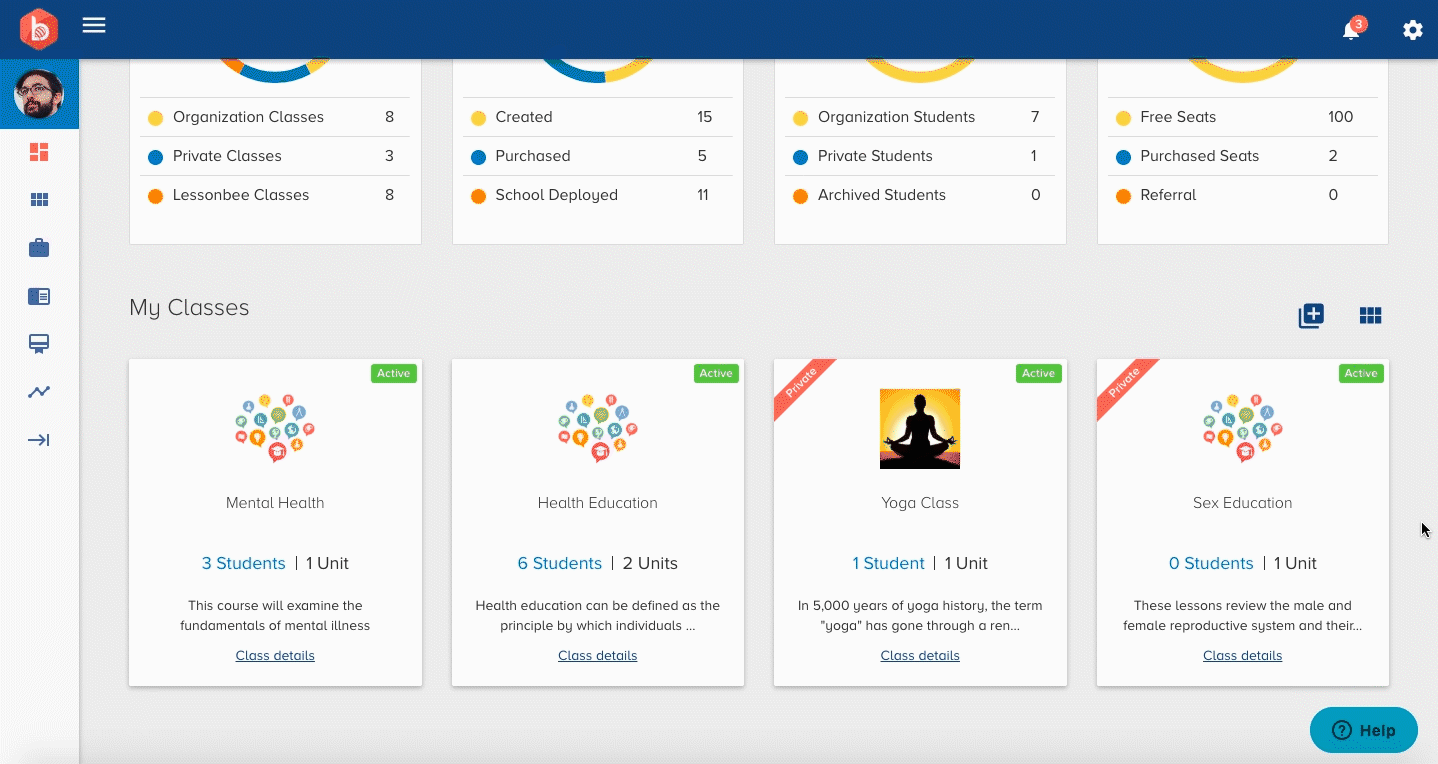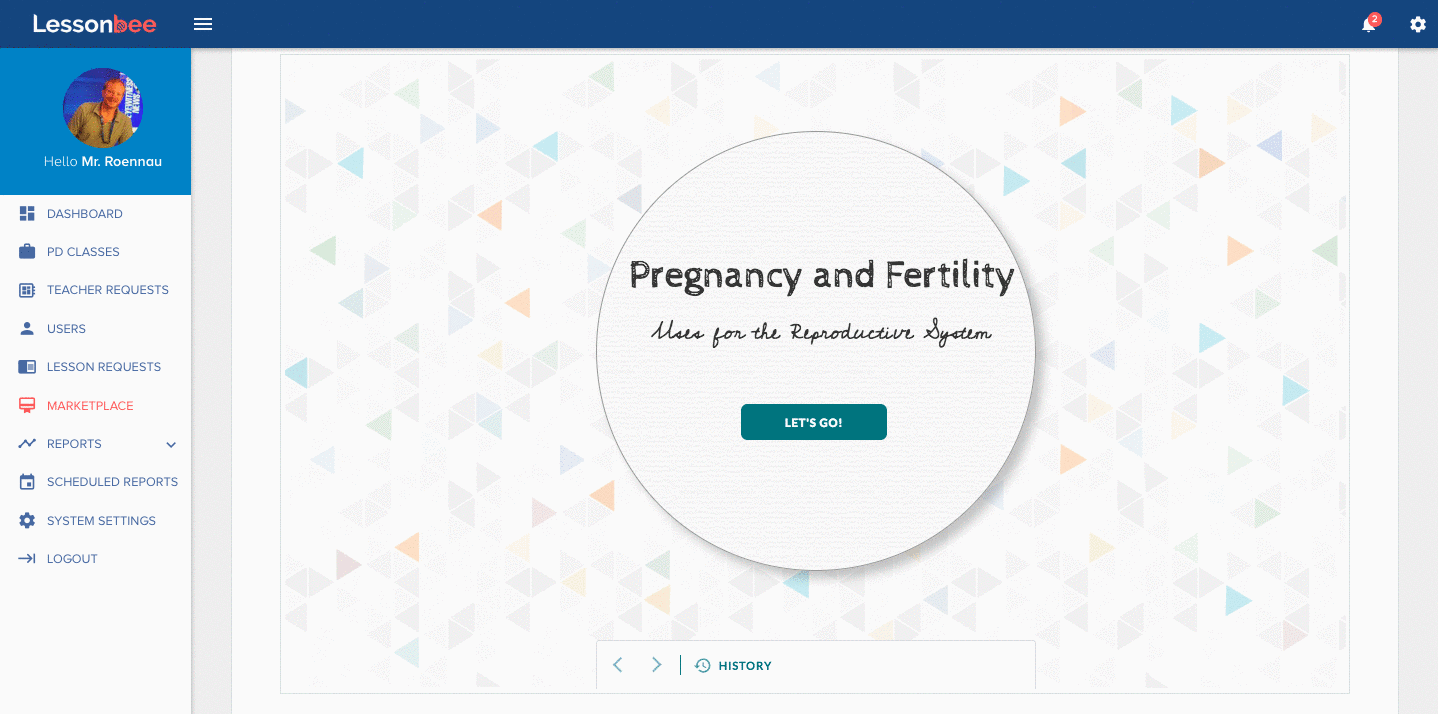Sex education in the United States is complicated.
One example: For decades, the United States invested billions into abstinence-only programs. Eventually, schools rejected government funding for these programs and pushed a more comprehensive and medically accurate agenda. Even with progress, schools across the country continue to reckon with a legacy of inaccuracy. And the government is still funding abstinence-only programs.
It’s bad news for students, and for founder of Lessonbee Reva McPollom, a change is long overdue. She can personally vouch for how non-comprehensive education in health classes can isolate students.
As a child, McPollom said she was called a tomboy and felt confused because she identified as a female. There was no lesson teaching the danger of gender stereotypes and norms.
“I felt wrong for liking sports, for wanting to play drums, I felt wrong for everything that I loved or liked or attached myself too as part of my identity,” she said.
The silent suffering, she says, continued through high school: “If you look at my senior yearbook, like I’m not even in it, I just totally erased myself by that point.”
After working as a journalist, digital marketer and a software engineer, McPollom returned to her past with a new idea. She founded Lessonbee, a more comprehensive health education curriculum provider to express diverse scenarios in schools. The company’s goal is to help students avoid what she had to go through: missing out on the joy of education and feeling worthy enough to learn.
The company sells a curriculum that covers a range of topics, from sex education to race to mental health, that integrates into existing K-12 school districts as a separate standalone course. The topics themselves then break down into smaller focus areas. For example, with the race unit launching soon Lessonbee will tackle the effects of race and ethnicity on quality of care, maternal health and food insecurity.
Lessonbee has hundreds of educational videos and interactive lessons created by teachers and the company, updated regularly. Each lesson also comes with a downloadable guide that describes content, objectives and recommendations for homework and quizzes. Lessonbee gives a guide for how to create culturally inclusive education, in line with standards put out by National Health Education and National Sexuality Education.

Image Source: Lessonbee
“It needs to meet all types of kids, regardless of where they’re at,” McPollom said.
One example scenario in the curriculum includes a student who starts having sex and then misses her period. Learners are then responsible for choosing what to do next, who to talk to and what they should do next time. It’s a “choose your adventure”-style learning experience.
Students can log onto the platform and take self-paced classes on different health units, ranging from sex education to mental health and racism. The lessons are taught through text-message scenarios or gamified situations to make sure students are actively engaging with the content, McPollom tells TechCrunch.

Image Source: Lessonbee
State policy regarding education is often a nightmare of intricacies and politics. This is part of the reason so few startups try to solve it. If Lessonbee were to pull off its goal, it would initiate bigger conversations around racism and health into a kid’s day-to-day.
McPollom is currently pitching the service to school districts, which have tight budgets, and venture capitalists, who say they are open for business. So far, the company has 600 registered schools on its platform.
“It’s a non-core academic subject so it’s the last priority, and there’s just inequity all over the place,” she said. “There’s a mismatch of privacy policies across the United States handled differently and it kind of dictates the quality of health education that you’re going to receive.”
Lessonbee subscription is priced low to be more accessible, starting at $16 per learner annually. Individual courses start at $8 per learner annually.
Today, McPollom announced that she has raised $920,000 in financing.
As for the future, McPollom views her go-to market health class strategy as Lessonbee’s “Trojan horse.” She wants to integrate the culturally diverse curriculum into social studies or science classes, and cover how interconnected the subjects are and their ties to inequity and health.
McPollam says the team is developing an anti-racism course to introduce for the fall in the wake of the recent protests against police brutality. Topics in the anti-racism course include the effect of race and ethnicity on quality of care, ways racism impacts maternal health and structural racism and food insecurity.
“We’re hoping to evolve to this idea of health across the curriculum,” she said. “For health to be effective, for you to actually move the needle, health needs to be holistic.”
Source: Tech Crunch



